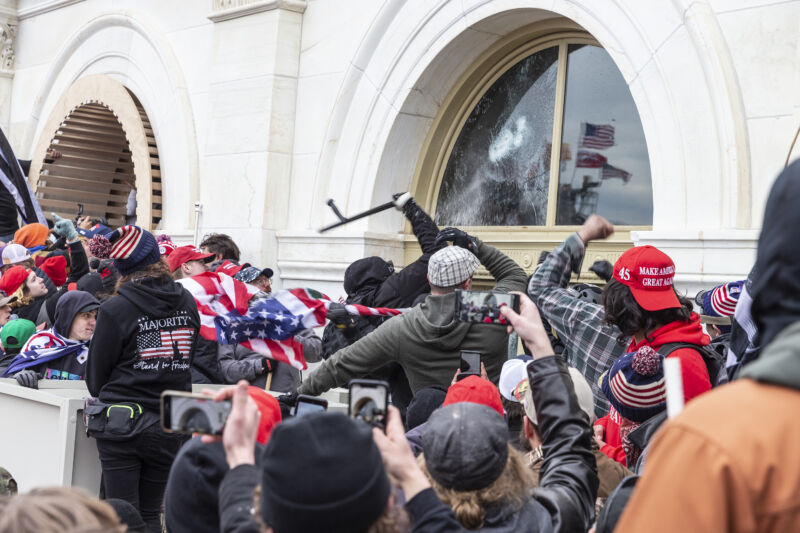
In recent days, Facebook has been waging war on content supportive of last Wednesday’s attack on the US Capitol. Last week, Facebook and Instagram indefinitely suspended President Donald Trump’s accounts on Facebook and Instagram. Now Facebook says it is banning posts containing the phrase “stop the steal”—a popular rallying cry for people who think the 2020 presidential election was stolen from Trump.
“We removed the original Stop the Steal group in November and have continued to remove Pages, groups and events that violate any of our policies, including calls for violence,” Facebook wrote in a Monday blog post. Facebook says that it has allowed “robust conversations” about the outcome of the 2020 election. However, the company said that it has seen “continued attempts to organize events against the outcome of the US presidential election.” Facebook worries that these efforts could “lead to violence.”
The action is not automatic. Around 5pm on Monday, I was able to write a Facebook post that said “Does Facebook let me say ‘stop the steal?'” Facebook says that “it may take some time to scale up our enforcement of this new step.”
Facebook isn’t the only tech company announcing new restrictions to prevent a repeat of last Wednesday’s violence. Until last week, the Trump campaign and the Republican Party used ExactTarget, an email marketing program owned by Salesforce, to send out fundraising emails. In the days before last Wednesday’s riot, the campaign had been sending out several fundraising emails per day. But since Wednesday, no emails have been sent. Salesforce confirmed to Vice that it had “taken action” against the Republican National Committee to “prevent its use of our services in any way that could lead to violence.”
Measures like this are being taken amid rising concern that more violence could occur between now and President-elect Joe Biden’s inauguration on January 20. On Monday, federal authorities said they planned to lock down a swath of the nation’s capitol for six days before Biden is sworn in. Some right-wing extremists have vowed to return to the nation’s capital ahead of next week’s inauguration in a final bid to stop the transfer of power. It’s not clear how many of these people, if any, will follow through on these threats. But technology executives and law enforcement agencies don’t want to get caught flat-footed again.









